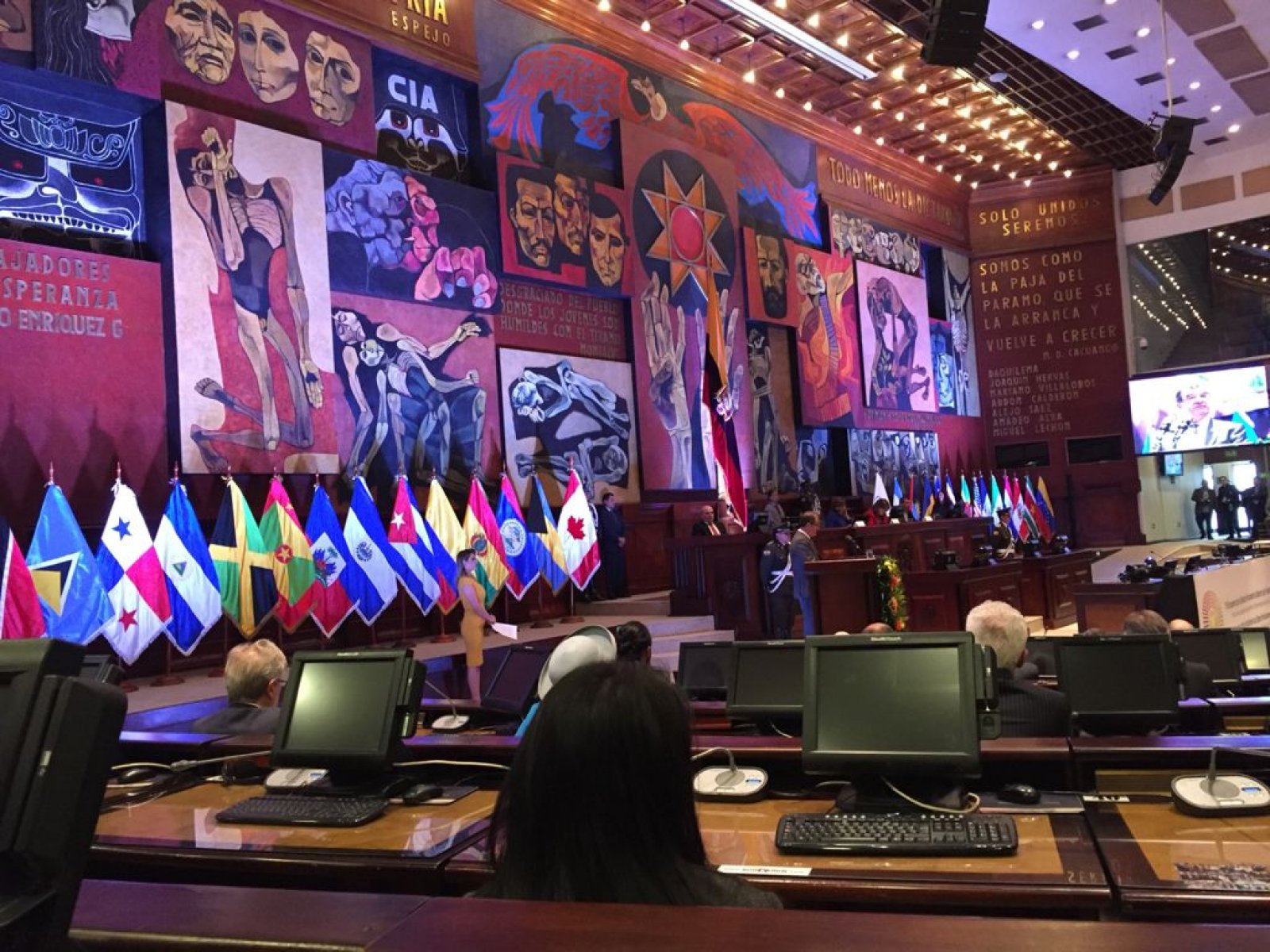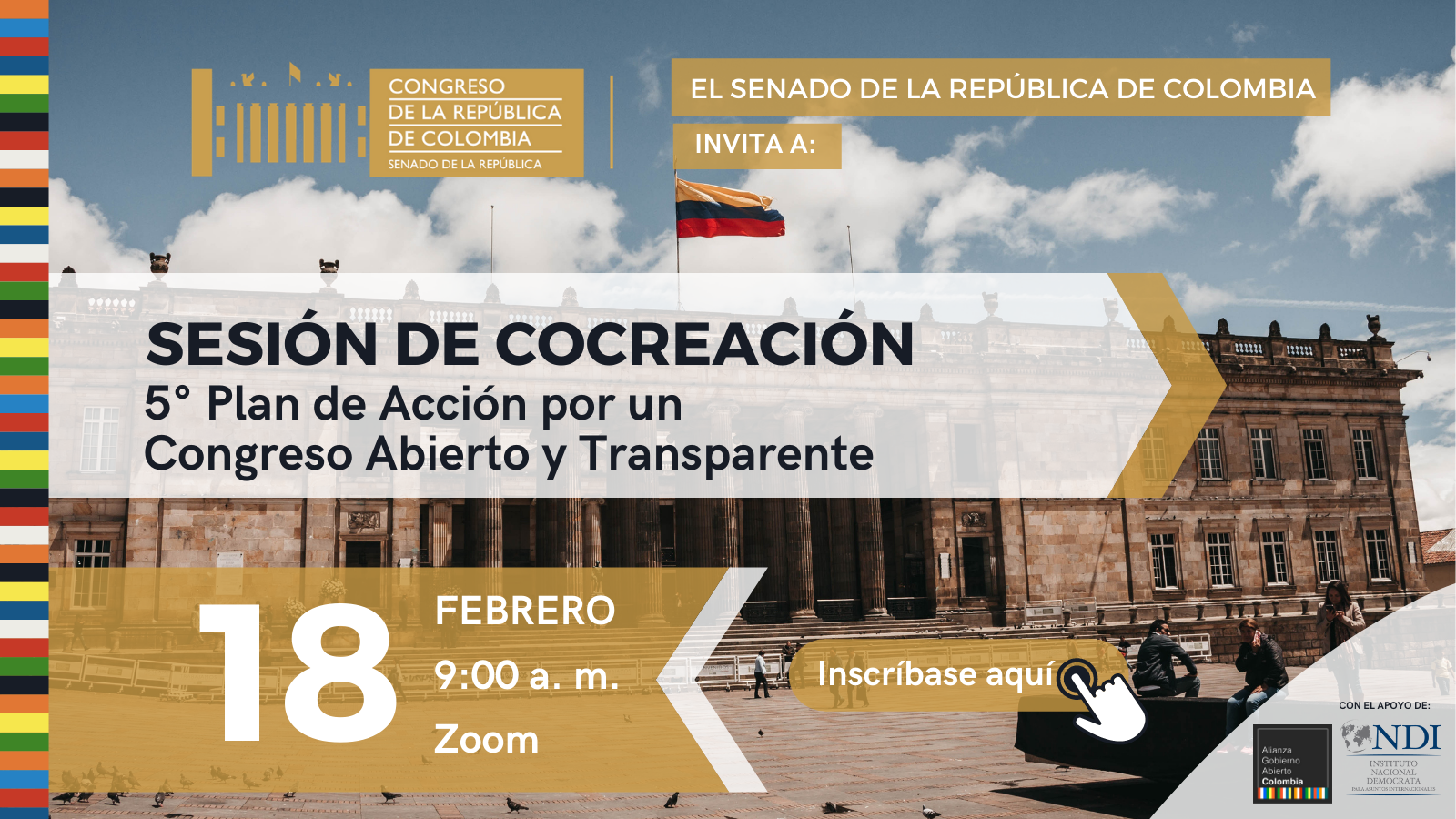
SHARE
The COVID-19 pandemic underscored the need for government transparency, accountability and citizen engagement. In response, Argentina, Colombia and Ecuador have adopted open parliament plans and regulations that focus on increasing transparency and access to information; accountability; citizen participation; and ethics and probity.
Argentina
In Argentina, NDI partner Legislative Directory (Directorio Legislativo, DL) was among roughly 30 civil society organizations who actively collaborated with the Chamber of Deputies to co-create the first open parliament action plan. Through thematic sessions, civil society groups shared draft proposals with legislative staff on issues such as, digitalization of legislative documents, citizen participation, access to public information and gender equality.
As a result of Legislative Directory’s work, the Chamber of Deputies pledged to ensure gender equality and sexual diversity, drafting a plan that applies a gender-approach in all five commitments. Furthermore, the plan uses inclusive language; promotes the participation of women and the LGBTQI+ community; and registers and publishes information on citizen participation to facilitate greater engagement.Following NDI’s virtual course on Plain Language for Legislatures last year, the Chamber of Deputies created a Protocol for the Functioning of Remote Parliaments in Plain Language and a Guide for the Best Practices for the Participation of Legislators and Staff in Telematic meetings sessions. These initiatives and documents helped legislators and staff work remotely more efficiently during the Covid-19 pandemic. Subsequently, the Chamber of Deputies adopted the open parliament action plan in April 2021.
Colombia
The (co-creation) exercise was very positive and dynamic, where teamwork was fundamental. The officials were very engaged with the methodology and co-creation process, those charged with leadership roles assumed their responsibilities in the co-creation process and it is very important to repeat these types of exercises. Without a doubt, the use of technology tools and formats are a strength, not a weakness, and good tools to obtain citizen feedback. I thank NDI for all the help provided given the strong positive impressions and comments from the participants.
A senate staffer explained
Like Argentina, Colombia also completed a co-creation process for the fifth open parliament action plans for both the chambers of the Senate and Chamber of Representatives. NDI helped with the Senate planning process, and trained legislative staff on virtual tools and other aspects of working with civil society to draft the plan. As an important milestone of legislative openness initiatives, the Chamber’s plan for the first time includes targeted outreach to the Afro- Colombian population.
The plans that resulted from this collaborative process addressed accountability, open data, technology tools, communications and public integrity. NDI further facilitated a training session with the second vice presidency of the Chamber of Representatives and congressional staff to inform them about the contributions, needs, and legislative challenges of the Afro-Colombian population in an effort to enhance the participation of marginalized groups and reduce political and economic inequality.
Ecuador
Open Parliament policies are important because they promote ethics and probity in parliamentary work, with a perspective of legislative innovation through the mechanisms recognized in the Ecuadorian legal system, as well as good practices in the matter at the international level. [Furthermore,] open parliament regulation [...] provides citizens with real mechanisms for access to legislative information as well as tools for civil society to have a more permanent impact on legislative issues.
Former National Assemblywoman Cristina Reyes Hidalgo explained the importance of the regulation, noting
When Ecuador’s National Assembly decided to create an open parliament regulation in November 2020, NDI -- along with its local partner, Citizenship and Development Foundation (Fundación Ciudadanía y Desarrollo, FCD) -- quickly took steps to develop and implement a participatory process to produce a draft regulation.
The participatory process led by NDI and FCD included broad consultation with international actors, academics, local civil society organizations and 27 staff members of Ecuador’s National Assembly. After multiple meetings, these stakeholders drafted an open parliament proposal that reflects the needs and ideas of diverse constituencies. The proposal highlighted important topics like institutionalizing an open parliament working group; developing co-creation processes for open parliament action plans; developing transparency and open data policies for the National Assembly; and an online platform for open parliament. These initiatives ensure that the newly elected National Assembly will operate in a more open and transparent manner and better engage constituents from a variety of sectors.
NDI’s Open Parliament Initiatives
In addition to country-specific initiatives, NDI supports legislators and legislative staff through virtual courses on open parliament principles and open parliament plan co-creation processes. These courses can be found on the Red Innovacion website, alongside informative materials that similarly pertain to open parliament co-creation processes including: A Guide for Plain Language for Legislative Information and Texts, Gender Foci in Open Parliament: From Theory to Practice, and Open Data and Parliaments in Latin America. Furthermore, in June NDI will host a virtual course on Public Integrity for Legislatures. These resources, in combination with country-specific support in Argentina, Colombia and Ecuador, are meant to promote greater transparency, citizen participation, accountability and access to information across Latin America.




